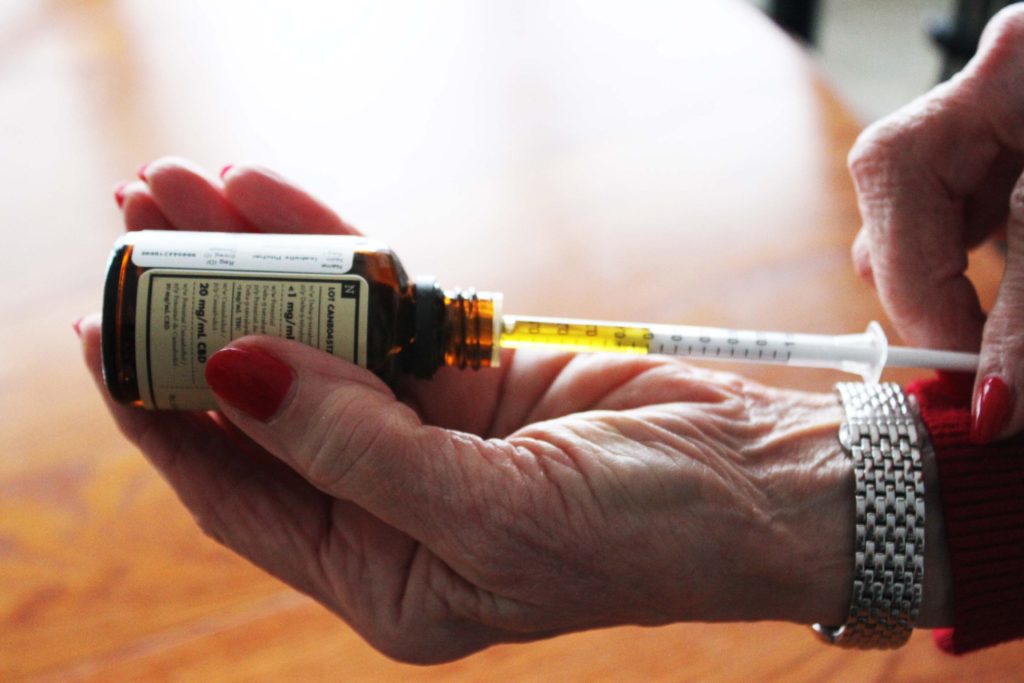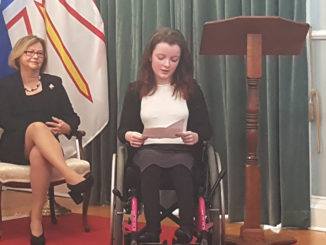Senior citizens have begun to accept cannabis as a viable replacement for addictive opiate medications.
Allan Bradbury
Kicker

On Oct. 17, cannabis was legalized in Canada. Now, seniors have begun using and inquiring about cannabis products as an alternative to pharmaceutical drugs, including opiate pain killers.
Mickie Pitcher, 77, of St. John’s was scared of addiction when she experienced withdrawal after missing doses of the opiate painkiller her doctor prescribed for severe back pain.
“There are times when my pain level is crippling,” she said.
The fear of addiction so strong that Pitcher weaned herself off of the opiate.
Pitcher experiences severe, chronic pain due to having had spinal fusion surgery in her 20s, made necessary by a congenital condition. On advice from her massage therapist and chiropractor, Pitcher asked her doctor about cannabis products for her pain. The doctor then referred Pitcher to a cannabis clinic in St. John’s, and she started taking cannabidiol (CBD) oil last September.
One of the only downsides Pitcher mentions is the price, but she suggests the results are worth the financial cost.
“I think I’d pay anything for it.”
“It’s life-changing,” Pitcher added. “I’m really happy I’ve got all that chemical out of my body.”
Pitcher argues that that something that grows as a plant must be better for you than something that is created in a laboratory.
Industry sees trends among 60-plus demographic
Many older people are turning to CBD oils and soft-gel capsules, says Courtney Langille, a community engagement specialist with Canopy Growth Corporation.
These products allow for longer relief of symptoms than other options such as smoke or vapour inhalation, said Langille, whose company owns the Tweed chain of cannabis dispensaries.
Langille says people in the 60-plus demographic seem to be comfortable now that cannabis is legal. They are put at ease by the fact that they can go into a controlled environment and get information.
People were likely reluctant to seek cannabis as a therapeutic option, even from a medical professional even though it has been legal medically since 2001. Such reluctance was partly due to the fact that they had grown up with cannabis being an illicit substance.
Many seniors who visit dispensaries are looking to use cannabis for relief from “spastic conditions” such as seizures and tremors. Others, like Pitcher, need help with pain or sleep.
“A lot of them (seniors) are very comfortable disclosing that they’re looking to use cannabis to achieve a specific result,” said Langille. “. . . In those cases, we are very cautious to ask them to talk to their doctor about it.”
Many seniors seek cannabis solely for its therapeutic benefits and are not interested in the high feeling which comes from tetrahydrocannabinol or THC. Others use cannabis recreationally and are looking for the high.
“You can’t really look at someone and say they’re going to want that or that or that; sometimes it’s the old lady that wants the high THC Indica (strain of marijuana),” said Lesley Wagner, operations manager at Thomas H. Clarke’s Distribution in Portugal Cove–St. Philip’s.
Pitcher feels no stigma in using a cannabis product.
“I’m happy to tell people I’m taking medical marijuana.”




Bravo! Mickie Pitcher was great and the photograph is beautiful!